5 Best Gravel Types for Patios (Pros & Cons)
-
- Last updated:
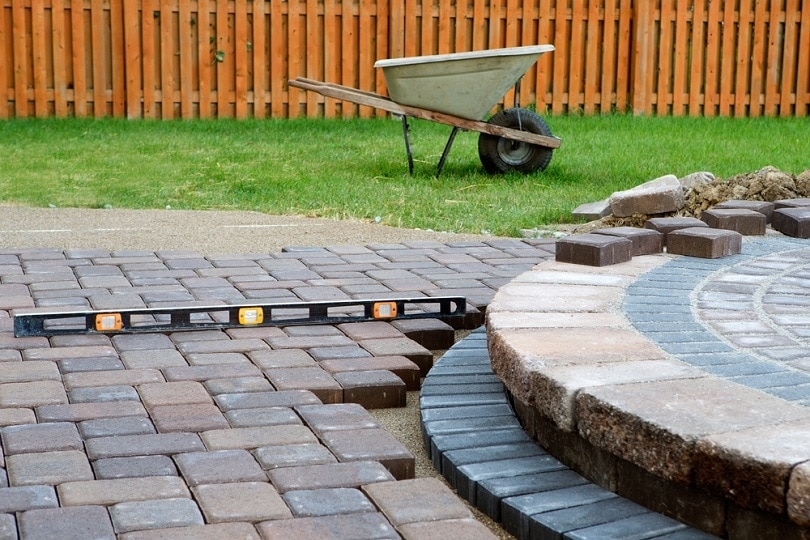
If you are considering building a gravel patio for your home, you are likely wondering about the options you have available to you as far as gravel types. You can use several products, but if you haven’t done this type of work before, it can be confusing to know which kind will serve you best.
We’ve collected all of the different types, and we’ll go over the pros and cons of each so you can see which one will work best for your purposes.
Road Rock
Gravel patios usually have a cement enclosure. You need to remove any grass and topsoil until you reach the harder soil below to provide a sturdier base. The gravel will need to be at least four inches deep, so remember that as you dig, and the ground will need to be level. Install any drainage pipes you may need if your patio will receive rain.
With the patio based prepared, fill it ¾ full of Road Rock, also known as Road Base. The road base is a stone aggregate designed to provide structural integrity. It’s a type of angular crushed stone that locks in place when you tamp it down and provides a high degree of stability.
The 5 Best Gravel Types for Patios
With the base prepared and the road rock added, it’s time to choose what type of gravel you will use to fill the remaining ¼ of your patio box.
1. Crushed Stone
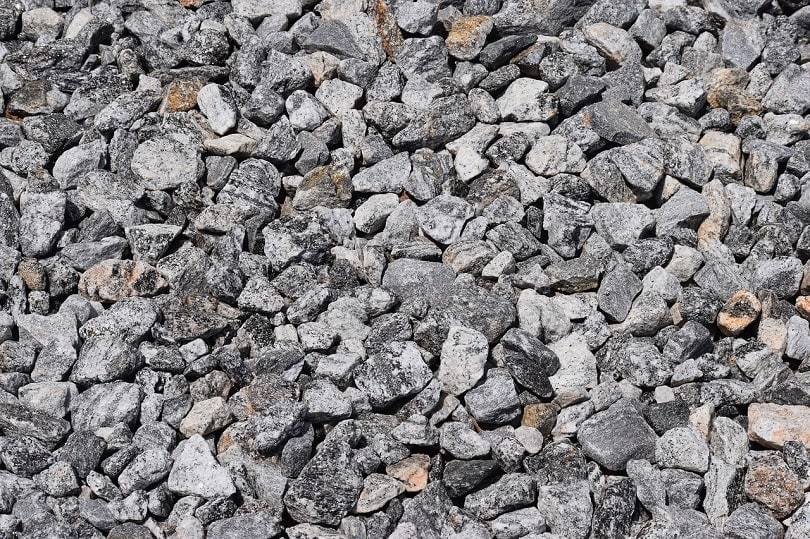
Crushed stone is an inexpensive solution that works very well. The irregular shapes of the rocks help them bind together over time to produce a stable surface. It’s available in many sizes and colors, so it’s easy to achieve any look you want. Once the stones begin to lock in place, your patio will require very little maintenance.
The only real downside to crushed stone is that it’s easily kicked out of the enclosure. The stones can also crush further and settle, requiring you to refill the patio every few years.
- Inexpensive
- Multiple color options
- Little maintenance
- Easy to kick out
- Requires frequent replenishing
- Requires settling time
2. Marble Chips
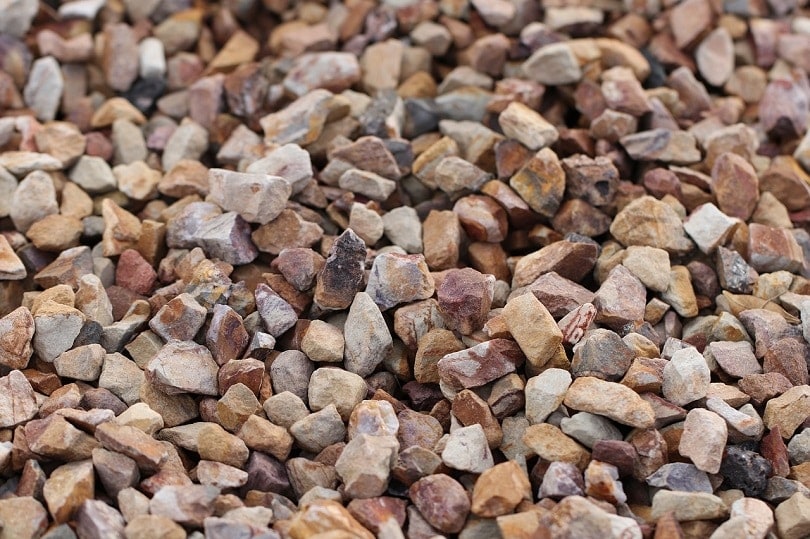
Marble chips are another option that many people use as patio gravel. It looks quite attractive and doesn’t require much time to settle into a stable base. It also doesn’t require frequent refilling, and it’s available in several colors and grades.
The downside to marble chips is that they are more expensive, depending on what type you get, and it’s not as easy to create designs that you might see with crushed stone. It also collects dirt and is hard to keep clean, so it requires quite a bit of maintenance. It can also create puddles when it rains as the water doesn’t easily pass through it.
- Attractive
- Doesn’t settle
- Stays in place
- Expensive
- Creates puddles
- High maintenance
3. Pea Gravel
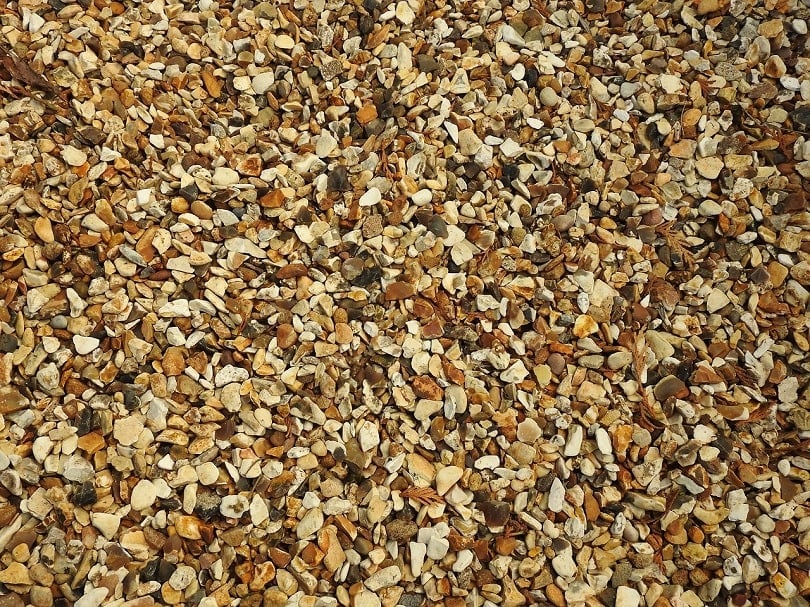
As the name suggests, pea gravel is a small and round rock often found by riverbeds. It’s perfect for creating designs on your patio floor and is available in a wide range of colors. Rain passes through it easily, so it will keep your patio dry, and it’s easy to walk on. It also resists moss growth and rodents.
The downside to pea gravel is that it doesn’t lock in place, so it’s easily kicked out of the enclosure, and walking through it will create footprints. Even heavy winds or rain can scatter the pebbles, so you will need to frequently rake and replenish them, making it a higher maintenance option.
- Easy to use
- Easy to create designs
- Does not create puddles
- Easy to walk on
- High maintenance
- Easily kicked out of place
- Frequent refilling
4. Decomposed Granite
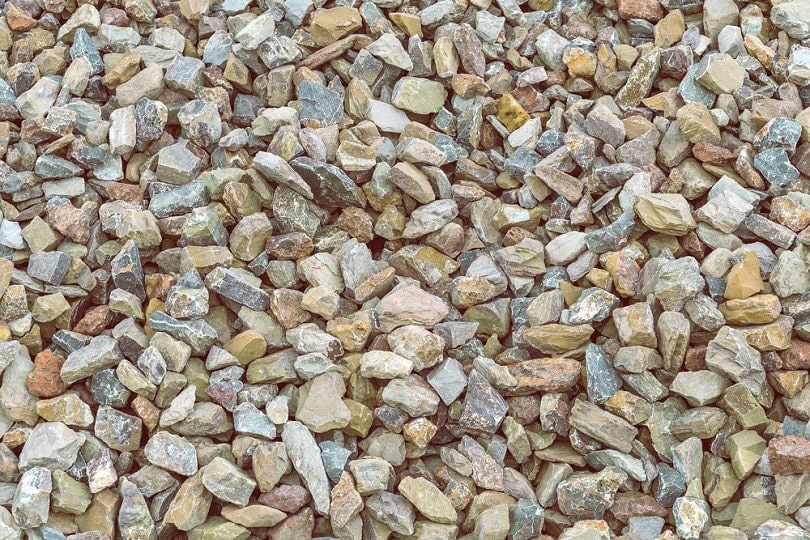
Decomposed granite forms naturally from weathered granite. It’s inexpensive and available in a wide variety of colors. Once settled, it will provide you with a hard, stable surface while retaining the ability to absorb water.
The biggest downside to decomposed granite is that it tends to stick to your shoes, not something we want in patio gravel. While it’s not as high maintenance as some others, it will require occasional redressing and refilling.
- Inexpensive
- Provides a stable surface
- Absorbs water
- Sticks to feet
- Occasional refilling
5. Lava rock
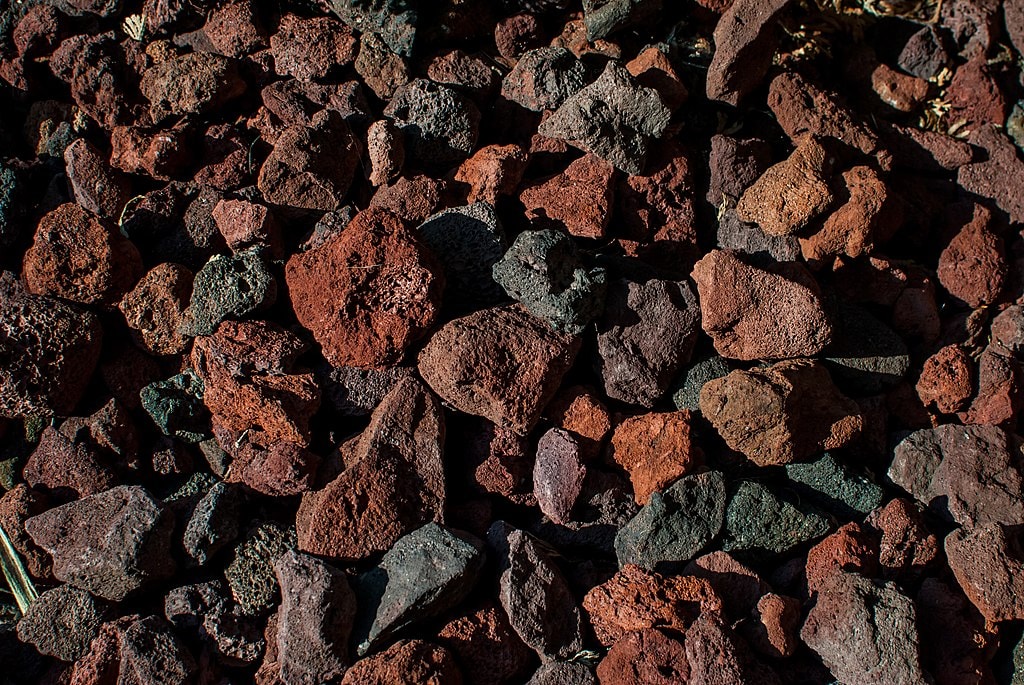
Lave rock is a popular gardening gravel material that you can use on your patio. It’s lightweight and porous, so it will absorb rainwater. It also stays in place and doesn’t break down or disintegrate, so it’s very low maintenance.
The downside to lava rock is that it’s very hard and can cause deep cuts if you fall on it. It’s only available in red, grey, and black, and it’s quite expensive compared to other types of gravel.
- Lightweight
- Absorbs water
- Low maintenanc
- Expensive
- Limited colors
- Can cause injury

Summary
When choosing a gravel type for your patio, we recommend crushed stone for most people. It’s available in a wide variety of colors and is easy to create designs and unique patterns. Once settled in, it provides a stable base that requires some maintenance but is inexpensive to replenish. Another great choice is the pea gravel. It’s very comfortable to walk on, even with bare feet, and it resists mold and stays dry.
We hope you have enjoyed our look into the different gravel types you can put in your patio and found the one you like. If we have helped answer your questions, please share this guide to the five best gravel types for your patio on Facebook and Twitter.
Featured Image Credit: Ozgur Coskun, Shutterstock
Contents

